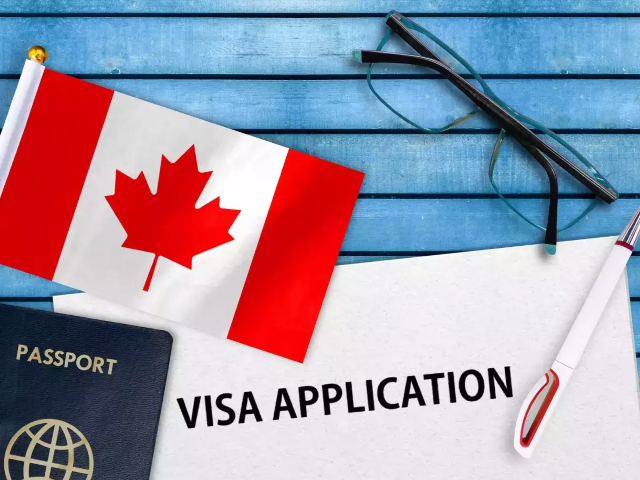
Canada restricts international student admissions for two years to curb abuse and ensure responsible growth in the education sector. (ToI/Canva)
Canada has recently made a significant policy announcement by imposing a two-year cap on the intake of international students. This move, driven by concerns about the integrity of the international student system, aims to prevent certain institutions from exploiting increased student numbers solely for financial gains.
Under the new policy, Canada is set to limit the number of approved study permits to 360,000 for the current year, representing a substantial 35% decrease from the previous year. This decision stems from the recognition that some institutions, termed as "bad actors," have been admitting international students without adequate support systems in place for these students. Additionally, the policy seeks to address the need to stabilize the growth of international student numbers, which, if left unchecked, could place undue pressure on the country's housing and healthcare facilities.
The specific allocation of study permits to each province and territory will be a key aspect of implementing this cap effectively. The immigration department plans to distribute the permits among designated universities within these regions. As part of the new regulations, the study permit application process will now require an attestation letter from a Canadian province or territory, confirming their capacity to accommodate incoming students. Provinces have until March 31 to establish the process for issuing these letters. The number of approved study permits for the year 2025 is expected to be disclosed by the end of the current year.
It's crucial to highlight that this policy does not apply to students pursuing master's and doctoral degrees, as well as those in elementary and secondary education. Additionally, students who currently hold study permits are exempt from the newly imposed cap.
A noteworthy distinction is made between a Canada student visa and a study permit. While the former allows the visa holder to enter Canada as an international student, the latter specifically permits the holder to study in the country.
In conjunction with the cap, Canada has introduced further measures. Institutions employing a private-public model will no longer enable their students to obtain a postgraduate work permit upon graduation. Furthermore, open work permits will now only be available to spouses of international students enrolled in master's and doctoral programs.
This multifaceted approach underscores Canada's commitment to addressing concerns surrounding the international student system and ensuring responsible growth, all while maintaining the integrity of its education and immigration processes.















